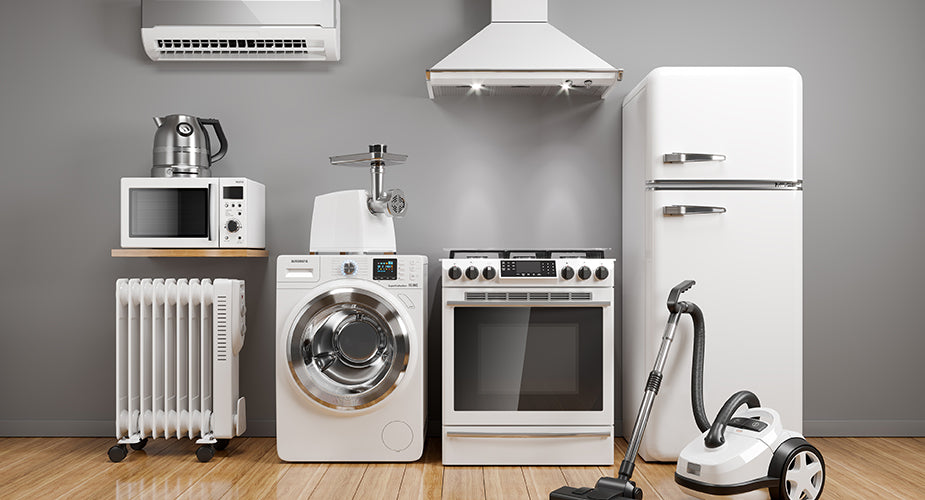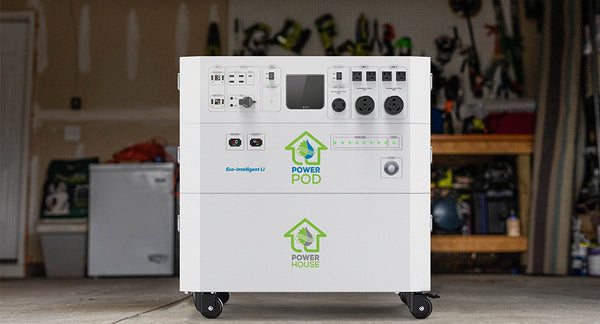A typical household in the U.S. consumes between 900-1,200 kilo-watt hours (kWh) of electricity per month, which is about 30 to 40 kWh per day. This roughly translates to an average monthly electric bill of $100 to $200. Additionally, a significant part of a household’s budget may go into energy-related expenses due to the climate, home size, efficiency of the appliances, usage habits, and energy rates. This is why it is important to understand what uses the most electricity in a home to lower the electric bill, as devices like heating and cooling systems, water heaters, and appliances often account for the largest energy consumption.

What Uses the Most Electricity in a Home?
Heating, Ventilation, and Air Conditioning (HVAC Systems)
When you see your monthly electric bill, would you know which devices or appliances are using the most power? If you are thinking of heating and cooling systems or HVAC systems, then you are correct. The most commonly used HVAC systems are furnaces, central air conditioning units, heat pumps, and boilers. Depending on the season and other factors, these appliances account for approximately 40-50% of the bill. To better understand what appliances use the most electricity, it's key to know that HVAC systems, water heaters, refrigerators, and laundry machines often consume the most power. The strategies below may help reduce this:
- Schedule annual maintenance for your HVAC system to ensure efficiency.
- Install a programmable thermostat to adjust temperature settings based on your schedule.
- Seal air leaks and ensure proper insulation to prevent energy loss.
- Use ceiling fans or portable fans to circulate air and reduce reliance on HVAC.
- Keep outdoor condenser units clean and clear of debris or blockage
- Close curtains or blinds to block out sunlight in summer and retain heat in winter.
- Use exhaust fans to remove excess heat and humidity
Water Heaters
On average, water heaters contribute to around 15-20% of the total electricity bill of a household. This is because heating water requires a considerable amount of electricity and it operates throughout the day to ensure that hot water is readily available for bathing, cleaning, and other household-related tasks. To understand what electrical appliances use the most electricity, water heaters are among the top contributors. Below are the ways to reduce the load from water heaters:
- Insulate your water heater and hot water pipes to retain heat.
- Lower the thermostat setting to around 120°F (49°C).
- Install a timer or smart controller to schedule water heating times.
- Repair leaks and insulate hot water pipes to prevent heat loss.
- Upgrade to a more energy-efficient water heater, preferably ENERGY STAR-certified.
- Practice water-saving habits to reduce hot water usage.
- Consider alternative water heating methods such as solar or heat pump water heaters.
Essential Appliances
Refrigerators, freezers, clothes dryers, and dishwashers are some of the appliances that most households use on a daily basis. These appliances make up around 10-15% of a home’s monthly energy bill. To better understand what uses the most electricity in a home, these appliances are among the top contributors, alongside heating and cooling systems.
A. Refrigerators and freezers run continuously to keep food cold or frozen, which requires a steady supply of electricity. In addition to this, older or less energy-efficient models may consume more electricity than newer, energy-efficient models. To lower costs:
- Place the appliance away from heat sources and ensure proper ventilation.
- Set temperature controls to recommended levels for efficient operation.
- Regularly defrost manual-defrost freezers and check frost-free models.
- Maintain a well-stocked but not overcrowded fridge or freezer
- Check and replace damaged door gaskets to ensure tight seals.
- Clean coils regularly to prevent dust buildup and improve efficiency.
- Minimize the number and duration of door openings to retain cold air.
B. Washing machines and clothes dryers consume a significant amount of electricity, especially if used frequently or if the dryer is older and less energy-efficient. To reduce energy consumption from washing machines and clothes dryers and lower your electric bill, consider the following tips:
For Washing Machines:
- Wash full loads of laundry whenever possible to maximize efficiency.
- Use cold water for washing clothes whenever feasible, as heating water accounts for a significant portion of energy usage.
- Choose shorter wash cycles and avoid extra rinses if not necessary.
- Consider purchasing a high-efficiency washing machine, which uses less water and energy compared to traditional models.
For Clothes Dryers:
- Air dry clothes on a clothesline or drying rack when possible.
- Use dryer balls to improve airflow and reduce drying time.
- Clean the lint filter after each use to maintain optimal airflow.
- Utilize moisture sensors if available to automatically shut off the dryer when clothes are dry.
- Wait to run the dryer until you have a full load of laundry.
- Run full loads to maximize dishwasher efficiency.
- Use energy-saving settings or eco-friendly cycles when available.
- Scrape food residue instead of rinsing dishes before loading.
- Load dishes efficiently to ensure proper cleaning and maximize space.
- Consider skipping the heat dry cycle and allow dishes to air dry.
- Regularly clean the dishwasher's filter and spray arms for optimal performance.
Entertainment and other Electronic Devices
Devices such as TVs, gaming consoles, computers, and audio systems typically contribute around 5-10% of the total electric bill in many households. This percentage may be higher in homes with a large number of electronic devices or if these devices are used frequently for extended periods. To better understand what electrical appliances use the most electricity, these electronics are among the key contributors. Here are ways you can lessen your bill because of these gadgets:
- Turn off devices when not in use or use power strips.
- Adjust settings for energy efficiency (brightness, power-saving modes).
- Schedule updates/downloads during off-peak hours.
- Use sleep/standby modes during inactivity.
- Keep devices away from heat sources and ventilate properly.
- Educate household members about energy-saving habits.
Lighting
Lighting may use a lot of electricity, especially if lights are on all day. This is also because different light bulbs use different amounts of energy. To reduce lighting costs and energy consumption:
- Switch to energy-efficient LED bulbs.
- Turn off lights when not in use.
- Use natural light during the day.
- Install motion sensors or timers.
- Consider dimmer switches for adjustable lighting.
- Regularly clean light fixtures for optimal brightness.

Invest in Solar to Save More
As you can see, reducing your energy bill doesn't have to be complicated. Simple changes around the house can make significant savings over time. Additionally, going solar is an excellent and cost-effective way to reduce electric costs. While the initial investment may seem daunting, many governments offer incentives, tax credits, and financing options to make solar more accessible. To understand what electrical appliances use the most electricity, focus on high-consumption devices like HVAC systems, water heaters, and electronics, and consider how solar power can help offset these costs. Plus, with advancements in solar technology, installation is becoming more efficient and affordable than ever before. For instance, Nature’s Generator Powerhouse collection offers a variety of options depending on your budget and needs. Contact our team and we can help you get a whole-house solar generator at a reasonable cost. You can also upgrade this by adding the Eco-Intelligent Lithium. This advanced battery technology offers features such as a longer lifespan, safety, and intelligent energy management.
To sum up, reducing costs and embracing solar energy offer numerous benefits. By implementing energy-saving strategies and transitioning to solar power, homeowners can significantly lower their electricity bills while contributing to environmental sustainability. To better understand what uses the most electricity in a home, focus on high-consumption appliances like HVAC systems, water heaters, and electronics, and consider how solar energy can help offset their usage, leading to long-term savings.
* We want to give credit where credit is due. Professional writer, Shobe Cruz, contributed research and content to this blog titled: What Uses the Most Electricity in a Home Thank you, Shobe, for your contributions!










